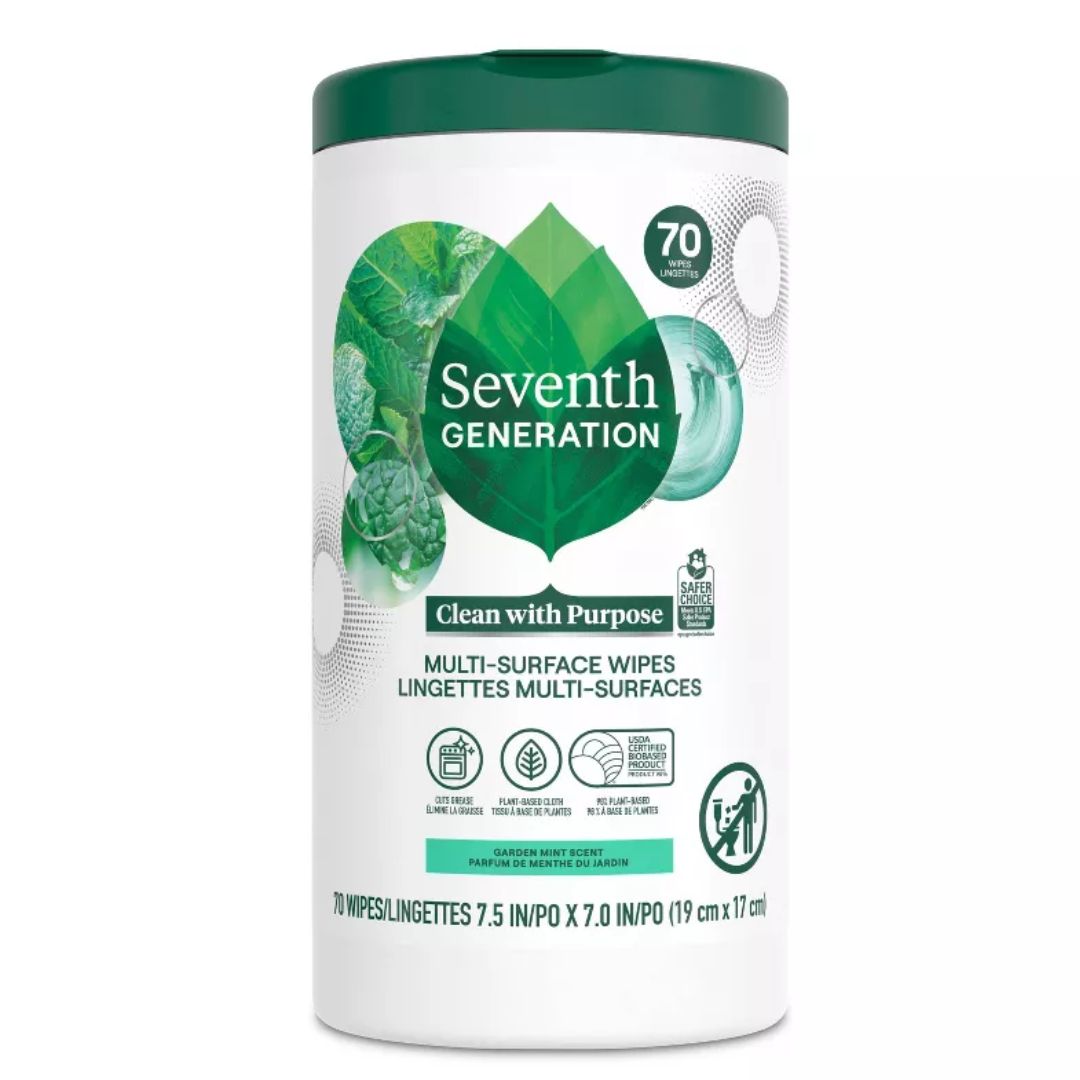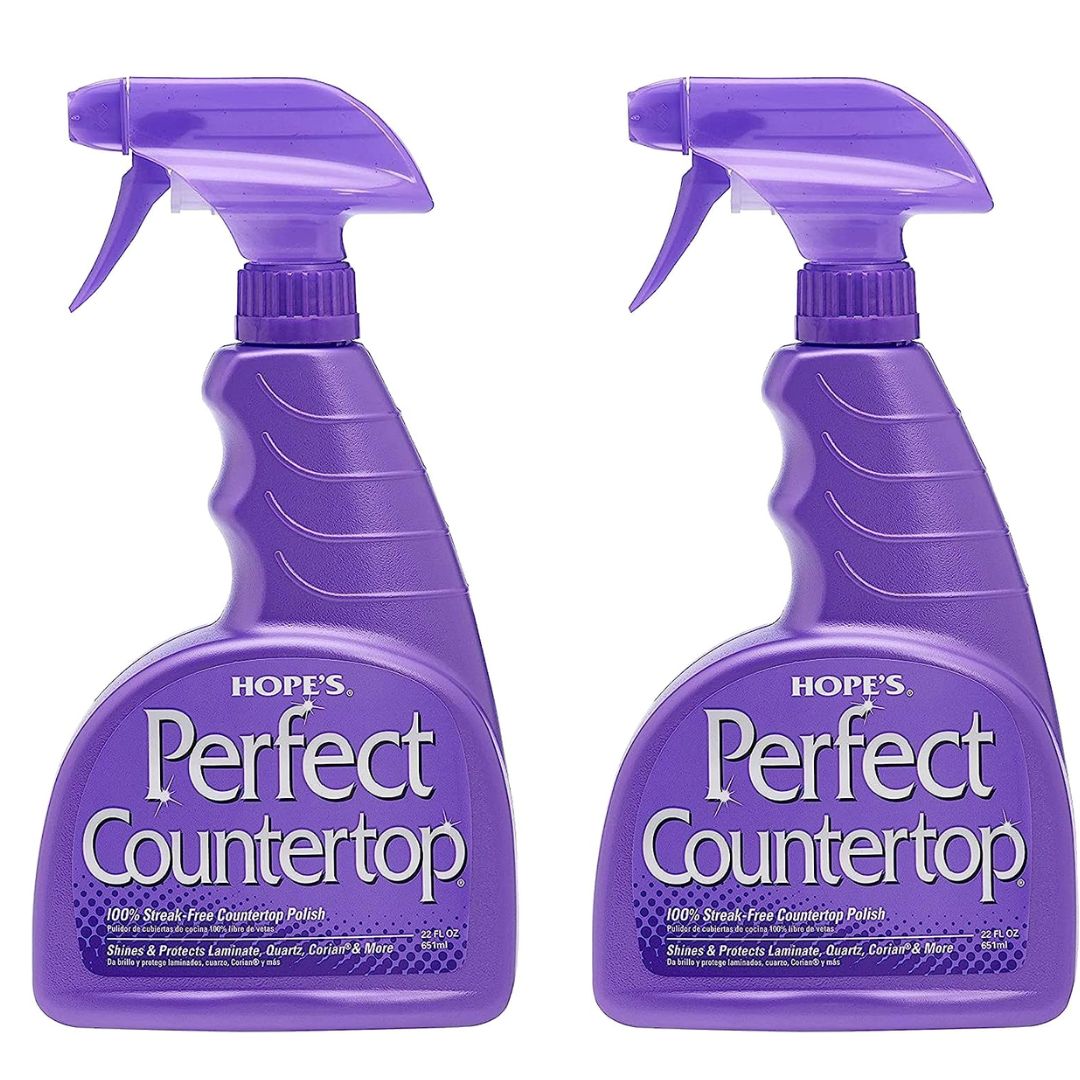What's the difference between Corian and Quartz countertops? This guide will help you decide between them
Renovating your kitchen and unsure what to pick between Corian vsQuartz countertops? We ask the experts for their help


The Livingetc newsletters are your inside source for what’s shaping interiors now - and what’s next. Discover trend forecasts, smart style ideas, and curated shopping inspiration that brings design to life. Subscribe today and stay ahead of the curve.
You are now subscribed
Your newsletter sign-up was successful
When it comes to kitchen design, one of the most important elements to consider is the countertop, especially if yours is a space that needs to handle some serious use. This surface takes the maximum brunt and is susceptible to wear and tear, but that doesn't always have to be the case. If you choose the right material, you can have a timeless, low-maintenance space that always looks smart.
To help you make the decision between two of the most popular countertop materials, Corian and Quartz, we reached out to experts to help us understand the pros and cons of these materials. Take a look at the key differences and make sure your modern kitchen is built to last.
What is Corian and Quartz materials?

Corian is actually a brand name, but is often used casually to refer to solid surface materials in general.
'Corian countertops are made of solid surface material, which is a blend of acrylic polymer and natural minerals, offering a seamless, non-porous surface,' explains Kerrie Kelly of Kerrie Kelly Design Studio. The colors in Corian countertops are plenty and come from pigments added to the resin, so they’re consistent all the way through.
What is quartz?
Quartz is a little different. 'Quartz countertops, are engineered from natural quartz crystals and resins, providing exceptional durability and a wide range of colors and patterns,' says Kerrie. Pigments are added to this material too, and quartz can mimic natural stone surfaces like granite or marble as well.
Which is more durable?
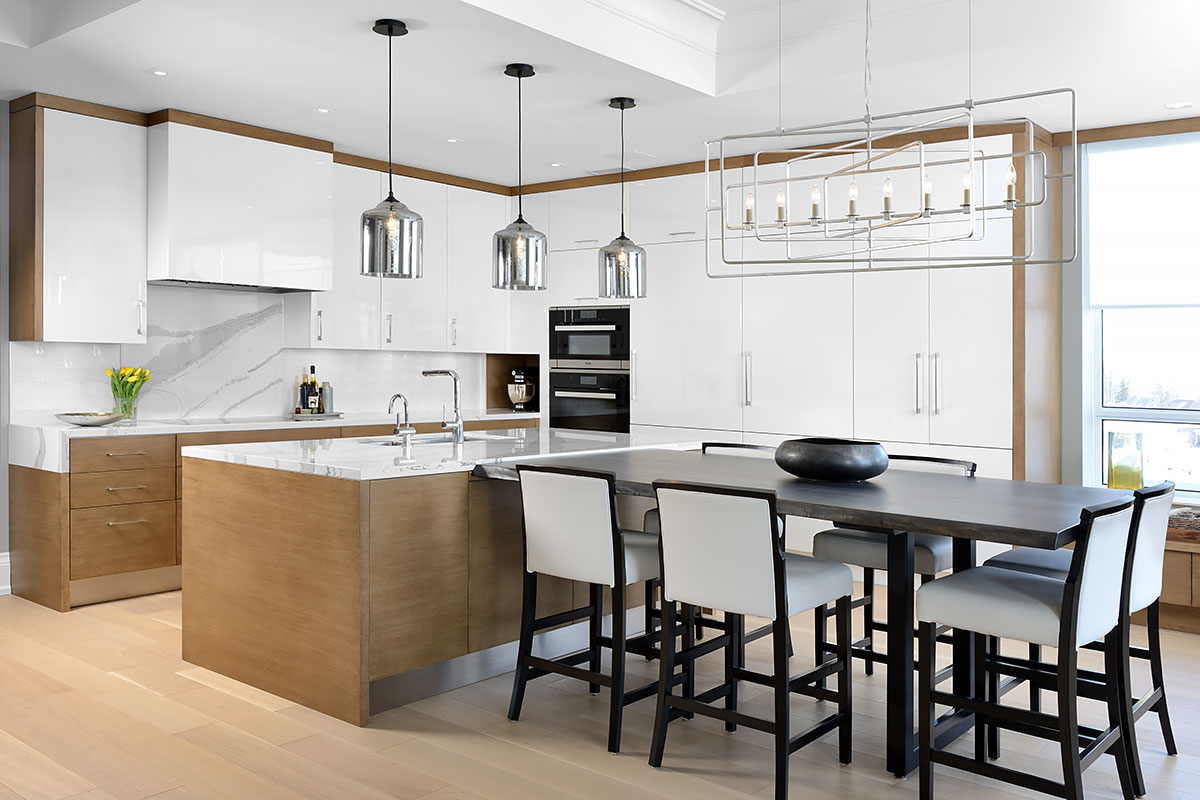
Kitchen countertops need to be practical and stylish and last a long time. So, between Corian and Quartz, which of the two has more promise?
'Quartz countertops are exceptionally durable and resistant to stains,' says Kerrie. 'This material resists scratches, mold, and mildew much better than Corian.'
The Livingetc newsletters are your inside source for what’s shaping interiors now - and what’s next. Discover trend forecasts, smart style ideas, and curated shopping inspiration that brings design to life. Subscribe today and stay ahead of the curve.
Corian is still a tough material, but it doesn't have the resilience and durability of quartz. A Corian counter is not resistant to high temperatures, and hot pans shouldn't be placed on it, even for a moment. The only way out is to use trivets to protect your Corian counters.
'While hot items shouldn’t be placed directly on quartz, it can withstand some heat as compared to Corian,' says Jane Lockhart, founder of Jane Lockhart Design. 'It can be noisy when placing hard objects on the surface and it can be perceived as hard and cold if you regularly sit at a quartz counter when dining.'
Which looks better?
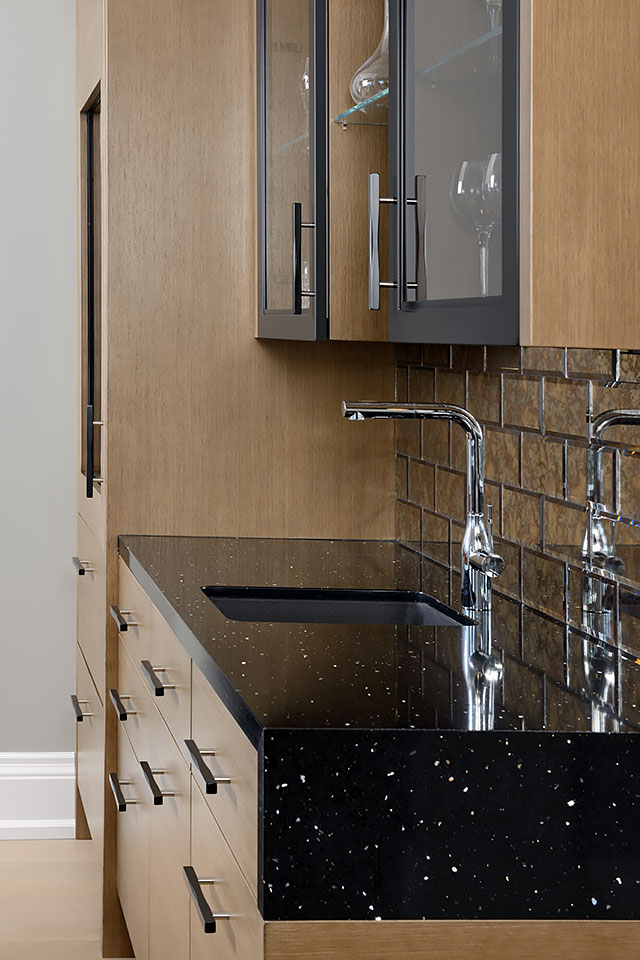
Along with being one of the best countertops for cooking, quartz is a more prolific countertop material, so you'll likely find more options for your counters in this style.
'Quartz is mostly polished, but there are some options in a matte finish,' says Jane. 'There is a multitude of patterns, colors, and finishes available with quartz, and many that have a layering of colors. Some quartz even has metallic-like gold and silver embedded within them.'
Which is more stain-resistant?
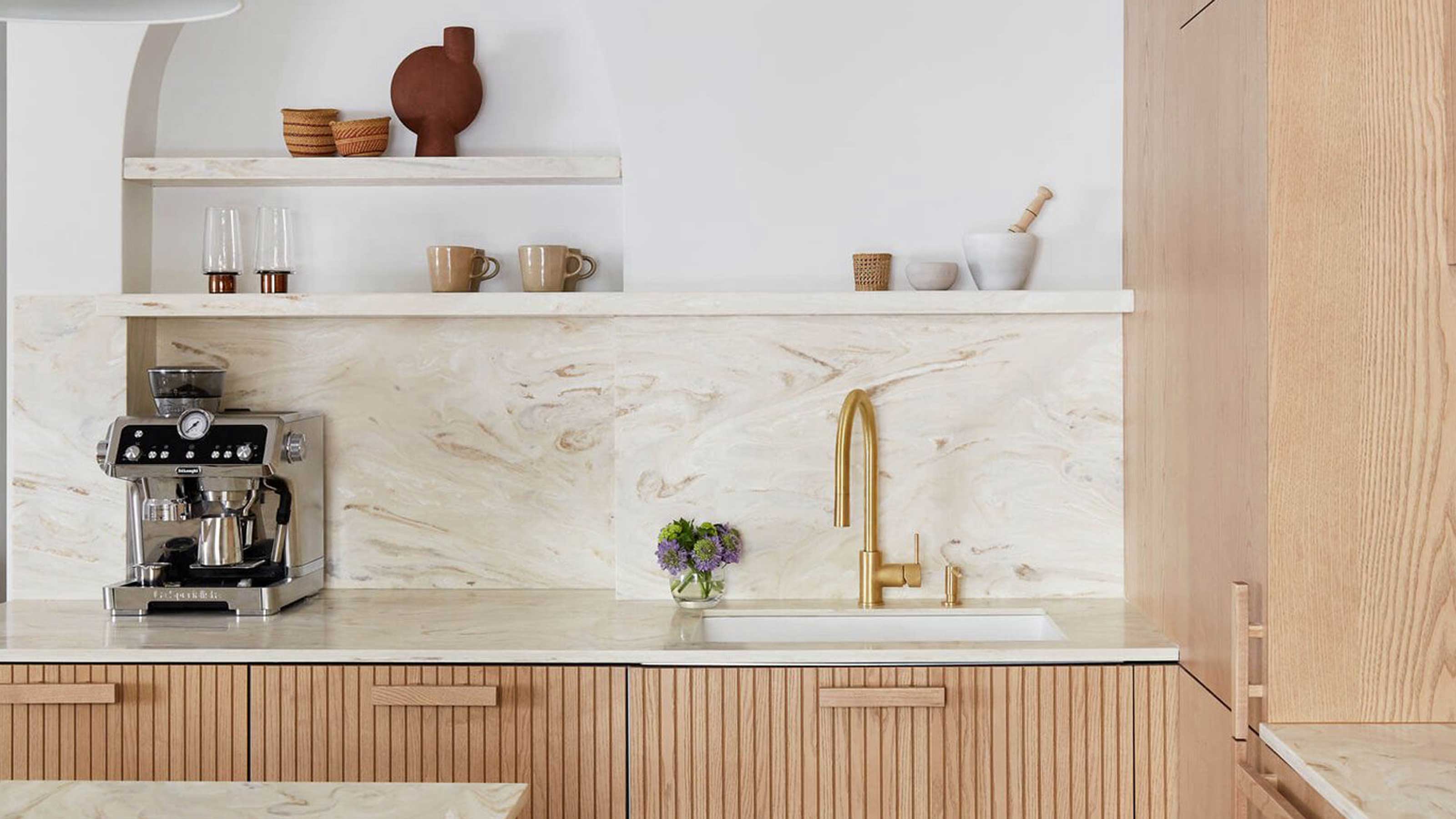
Which is the most low maintenance kitchen countertop? The one that cleans easily, right? Largely, both materials can be constructed as large single slabs, so the seams from kitchen counters can be avoided. Since they can be made without seams, both Corian and quartz countertops are hygienic.
'Stains on the quartz surface are not permanent but they can soak in and need a bit of elbow grease to remove,' says Jane. The same can be said about Corian. Both materials are non-porous, and thus do not need to be sealed often or need extensive maintenance. Spills and stains can be cleaned off easily from both countertops, and they do not need to be polished.
Which is easier to design with?
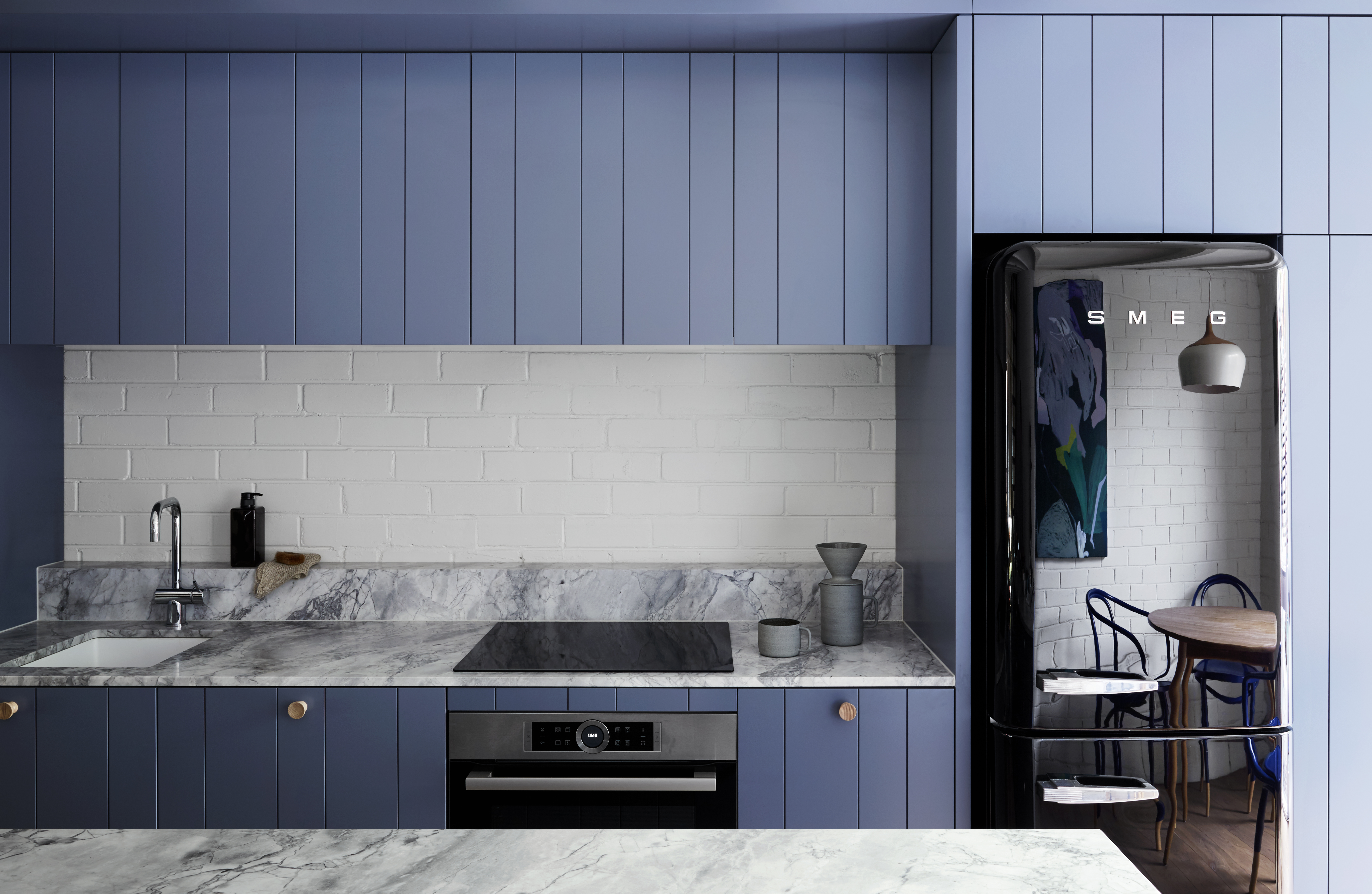
When it comes to kitchen countertop materials that are more flexible and seamless, Corian wins out. This material has a higher percentage of binding resins that allows for greater flexibility in terms of shape.
'Corian is very moldable, allowing you to create a seamless sink or rounded corners,' says Jane. 'There truly are no seams, so the opportunities are endless in terms of what length can be used or shape created. It is soft to the touch and relatively quiet when placing dishware or hard items on top. It is matte sheen, making it less of a visual statement than a glossy finish.'
Which costs more?
And finally, you need to weigh in on how much a Quartz countertop costs in comparison to a Corian one.
'While Quartz can be more expensive than some other materials and may not withstand high heat as well as natural stone, their resistance to etching and staining is unmatched,' says Kerrie.
While Corian counters cost anywhere between $45 to $65 per square foot, the installation costs can come up to $2,200 to $5,000, The price of quartz ranges from $50 to $200 per square foot, and the cost of installation is between $3,000 and $7,500.
3 products to maintain kitchen countertops

Aditi Sharma Maheshwari started her career at The Address (The Times of India), a tabloid on interiors and art. She wrote profiles of Indian artists, designers, and architects, and covered inspiring houses and commercial properties. After four years, she moved to ELLE DECOR as a senior features writer, where she contributed to the magazine and website, and also worked alongside the events team on India Design ID — the brand’s 10-day, annual design show. She wrote across topics: from designer interviews, and house tours, to new product launches, shopping pages, and reviews. After three years, she was hired as the senior editor at Houzz. The website content focused on practical advice on decorating the home and making design feel more approachable. She created fresh series on budget buys, design hacks, and DIYs, all backed with expert advice. Equipped with sizable knowledge of the industry and with a good network, she moved to Architectural Digest (Conde Nast) as the digital editor. The publication's focus was on high-end design, and her content highlighted A-listers, starchitects, and high-concept products, all customized for an audience that loves and invests in luxury. After a two-year stint, she moved to the UK and was hired at Livingetc as a design editor. She now freelances for a variety of interiors publications.
